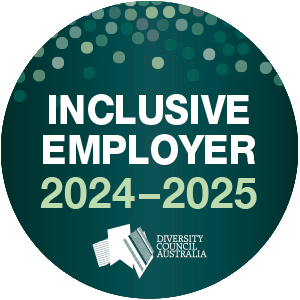Referral Pathways General Information
Referral Pathways for people using violence.
Practitioners across many sectors play an important role in identification, assessment, and risk management of people who use family violence.
This resource page aims to support practitioners, particularly in the mental health, alcohol, and other drug sectors, in making appropriate referrals to specialist family violence services for people using family violence, including men. See additional support for practitioners making referrals.
If you’re a provider and the details in the Find Services below that are no longer current, please email us at communications@ntv.org.au so we can make appropriate changes.
Additional support for practitioners making referrals to specialist family violence services.
When making a referral for a person using violence, there are steps that you can take to support the process:
- Ensure the person consents to the referral and meets the service requirements. Provide the person with accurate information on the service and ensure their capacity for engagement is achievable. You might also consult with the service to confirm the referral is suitable.
- Programs will have different preferences on their referral process. However, if you have information that is relevant to risk assessment and management, it is important to understand what you can share under information sharing schemes. You can find out more information here.
- Refer to specialised interventions like those on this page when addressing the person’s use of violence, as referrals to general programs without a family violence lens (such as anger management or couples counselling) risks colluding with the person using violence and putting victim survivors at risk.
- After making a referral, monitor the outcome as part of risk management and keeping the person using violence in view. A gap between services could mean the person disengages from the service system.
- If possible, remain engaged with the person using violence. Collaborative practice between services is important in holding a person using violence accountable and enhancing the safety of victim survivors. Engagement with the service system keeps people using violence ‘in view’ and can support the mitigation of contributing factors towards their violence.
While there are lots of tailored programs for people using violence, there are several common types of referrals for behaviour change. You can find out more about each one here:
Men’s Behaviour Change Program
One of the most common referrals is to a Men’s Behaviour Change Program (MBCP). MBCPs are a group setting of up to 14 men who have used abusive and controlling behaviours towards their family members. Some men may be court-mandated to complete this program, and others may be voluntary.
MBCPs are generally very similar in their operations, with men required to attend weekly 2-hour sessions for at least twenty weeks. Two facilitators, generally a man and a woman, will guide men through understanding their use of violence, holding them accountable for it, and encouraging behaviour change.
Family Safety Contact Workers support affected family members to ensure their safety, concerns, and supporting needs are monitored during this time.
Fees may apply for this service.
Case management
Some MBCPs include a case management component for participants in the group, to support individual needs and accountability during their engagement.
Not everyone is immediately suitable to participate in a group environment. Separate case management services might also be offered to people who require additional support to stabilise their situation before they are suitable. This may include support to address immediate needs around housing and homelessness, drug and alcohol, or mental health concerns.
Parenting programs
For parents who have exposed their children to family violence, specialised parenting interventions can help them understand the impact of their behaviour, the importance of child-centred parenting, and how to be a non-abusive co-parent. These programs often include a mix of group and individual support.
Many parents who have used family violence complete an MBCP and a parenting program as these interventions complement each other.
Services for Aboriginal and Torres Strait Islander people
Many Aboriginal Community Controlled Organisations offer support to people using family violence through group, family, and individual programs. These programs have a greater focus on healing and providing culturally appropriate support.
It is important to provide the option of these specific referrals to any Aboriginal and Torres Strait Islander people.
The Orange Door
The Orange Door is an entry point to access child and family services, and family violence services, including services working with people using family violence. The network is being rolled out until all areas of Victoria are covered by an Orange Door access point.
In those regions where it currently operates, it is an access point for people using violence to be engaged, assessed and provided with appropriate risk management through services and referrals to local programs.








